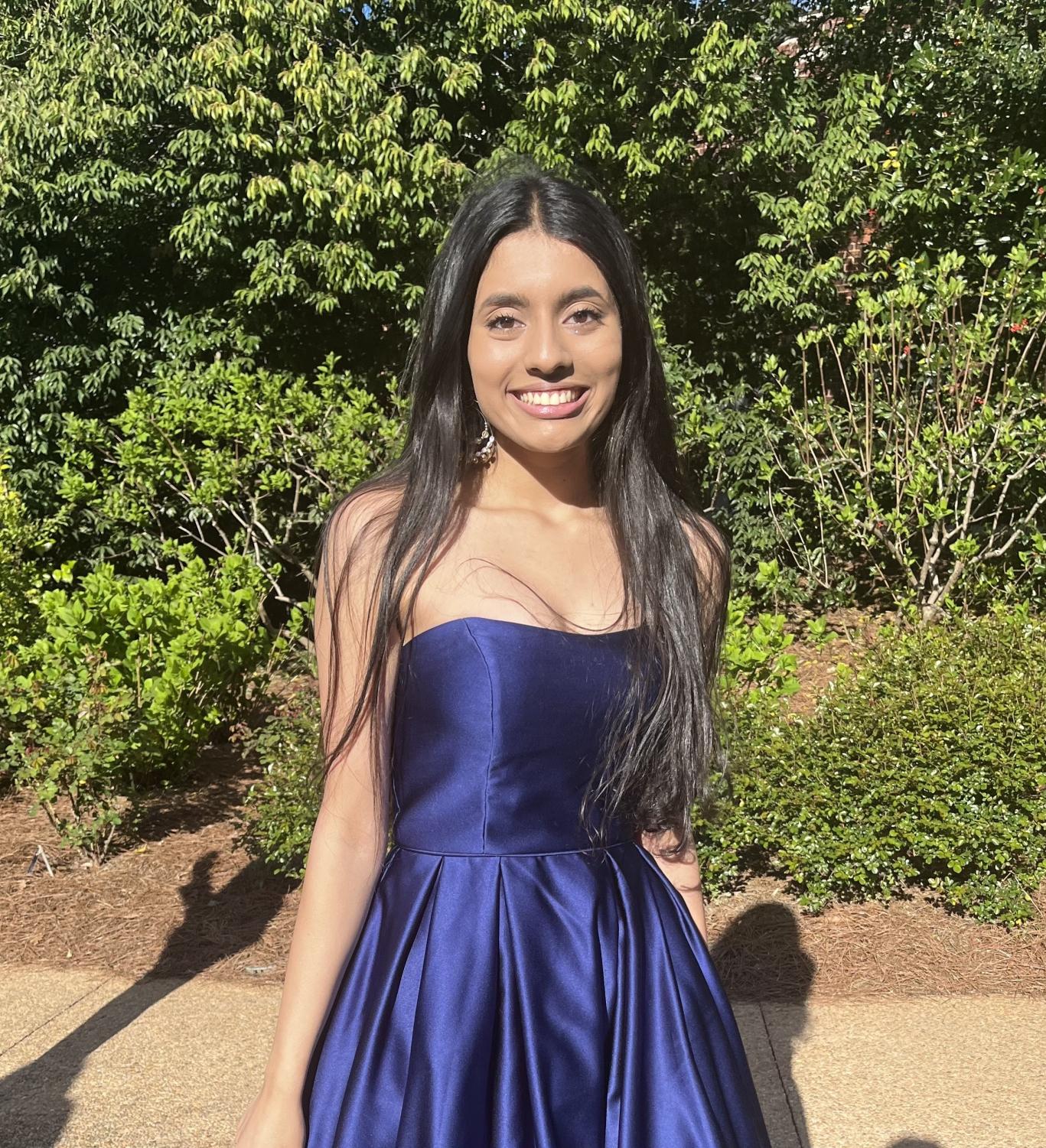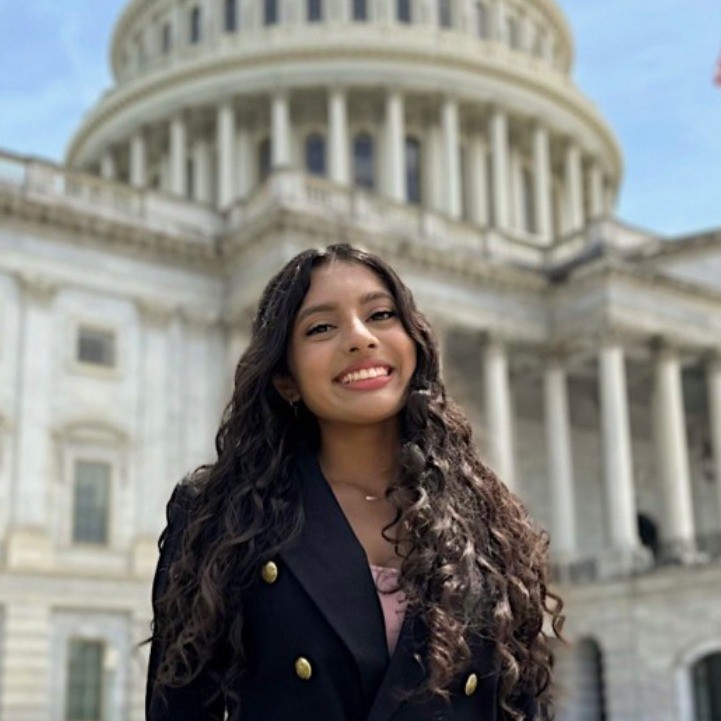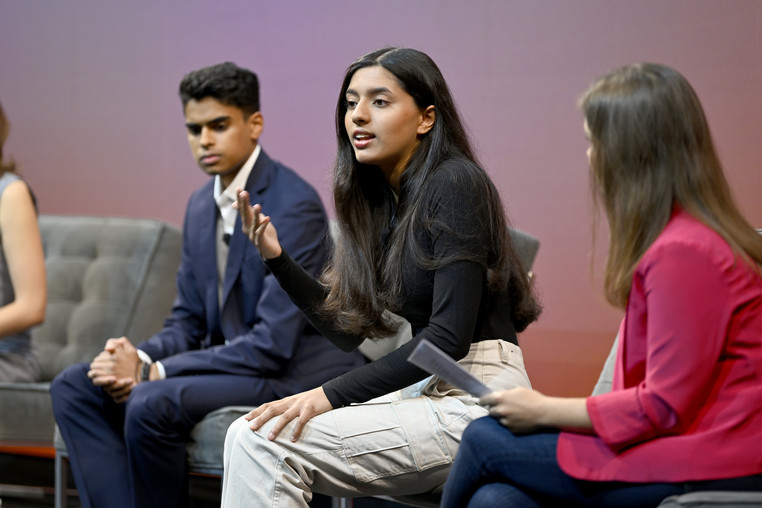(September 16, 2023) In an ever-evolving world increasingly shaped by artificial intelligence, a glaring gap in governance looms large. Despite the awe-inspiring strides of AI and its integration into our daily lives, governments worldwide have yet to craft the essential regulations and laws needed to both unlock AI’s immense potential and guard against its unforeseen risks. There, however, is one young Indian American activist who is taking these issues head-on – Sneha Revanur. The 18-year-old student of Williams College in Massachusetts, is the founder and President of Encode Justice, the world’s first and largest youth activist group in AI. And just about a few days back, the young activist was recognised on the ‘Time AI 100,’ the magazine’s maiden list of people who work with this emerging technology and “make critical decisions on when and how to best use it.”

“I am working towards safeguarding human rights, you know, democracy and equity in the age of artificial intelligence,” the Global Indian recently said in an interview, adding, “Encode Justice emerged from that ballot campaign with a focus on the use of AI algorithms in surveillance and the criminal justice system. It currently boasts a membership of 600 high school and college students across 30 countries.”
Diving in the world of AI
Originally from San Jose in Silicon Valley, the young activist started getting involved in tech advocacy when she was just 15. In 2020, she volunteered for a campaign that stopped a law in California that wanted to replace cash bail with a computer system. She got interested in it when she read an article in The New York Times about a clever AI chatbot. Lately, people have been worried that generative AI might trick and control people, and they’re also concerned about a more advanced type of AI called “artificial general intelligence.”
Speaking about her involvement in the campaign in California, the activist shared, “I came across an investigation into an algorithm called COMPAS, which is a risk assessment tool used to evaluate whether a defendant is at risk of committing further crimes or recidivating in the period between their arrest and sentencing. That really was my first encounter with this realm of algorithmic injustice and the existence of AI bias. What I found out through that investigation was that the algorithm was actually twice as likely to rate Black defendants as high risk even when they weren’t going to commit any future crimes. We oftentimes perceive technology as perfectly scientific, objective, and neutral, but in reality, it’s actually amplifying and encoding the existing systems of oppression. That really shocked me. Later, when I found out that there was a ballot measure in my home state of California in the US that would have expanded the use of the same sort of algorithms, I knew I had to do something.”


Sneha is a student of Williams College in Massachusetts
The activist adds, “I was outraged to see that there was almost no youth involvement in fighting the measure and there was no organised pushback to it. So, I decided to jump onto the scene and we formed Encode Justice and our first initiative was focussed on fighting that ballot measure, California Proposition 25. After dedicated organising and advocating we were able to eventually defeat the measure by a 13 percent margin. That was a pretty energising victory for all of us.”
Leading the way
In her inaugural year as a college freshman, Sneha couldn’t help but observe the swift integration of the term “ChatGPT” into the daily vocabulary of our world. It struck her as a compelling development, one that bore witness to the remarkable adaptability of Generation Z in embracing generative AI tools. For the activist, this newfound omnipresence of AI in her generation’s lives seemed to beckon an essential question: if they were at the forefront of its utilisation, should they not also play a pivotal role in shaping its regulatory landscape?


Sneha speaking at a conference held at the White House
“Our generation possesses probably the highest rates of digital literacy, we have been exposed to technology all of our lives; it’s always been at our fingertips. And I think that it gives us a unique understanding of human-computer interaction, our relationship with technology, and also how it shapes our worldview. And that’s why I think it is important for young people across the world to talk about this new technology and its long-term impact on society at large,” the activist shared.
In 2022, the activist took a leading role in orchestrating an open letter, urging congressional leaders and the White House Office of Science and Technology Policy to integrate the perspectives of the younger generation into AI oversight and advisory boards. Her advocacy didn’t go unnoticed; shortly thereafter, she received an invitation to participate in a high-level roundtable conversation on artificial intelligence, graciously hosted by Vice President Kamala Harris. “For the first time, young people were being treated as the critical stakeholders that we are when it comes to regulating AI and really understanding its impacts on society,” she told Time, “We are the next generation of users, consumers, advocates, and developers, and we deserve a seat at the table.”
Talking about her future plans, the activist mentioned, “I am planning to continue to expand our current initiative to ban facial recognition. I also hope to continue to expand internationally and to elevate diverse perspectives, especially perspectives from the Global South, on AI development. I wish to reach out to more and more young people – especially through Encode Justice’s workshop programmes.”




